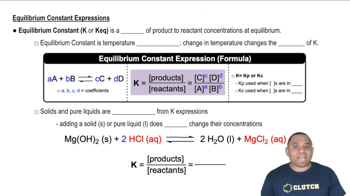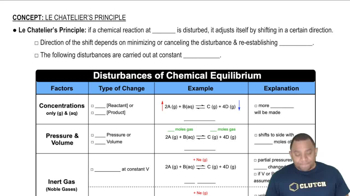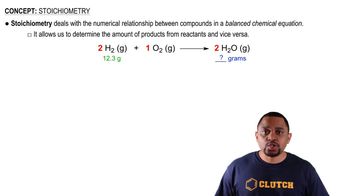Textbook Question
Consider the reaction: NH4HS(s) ⇌ NH3(g) + H2S(g) At a certain temperature, Kc = 8.5⨉10-3. A reaction mixture at this temperature containing solid NH4HS has [NH3] = 0.166 M and [H2S] = 0.166 M. Will more of the solid form or will some of the existing solid decompose as equilibrium is reached?





